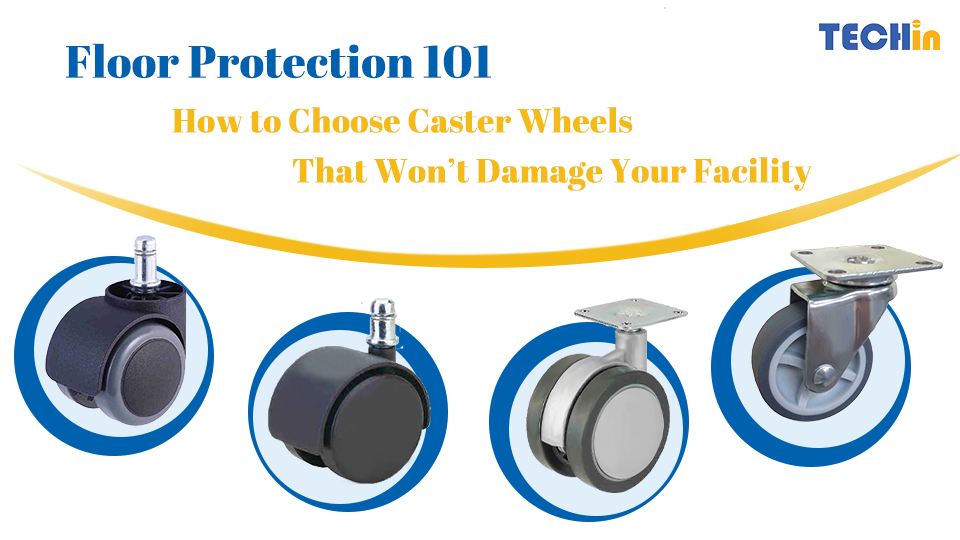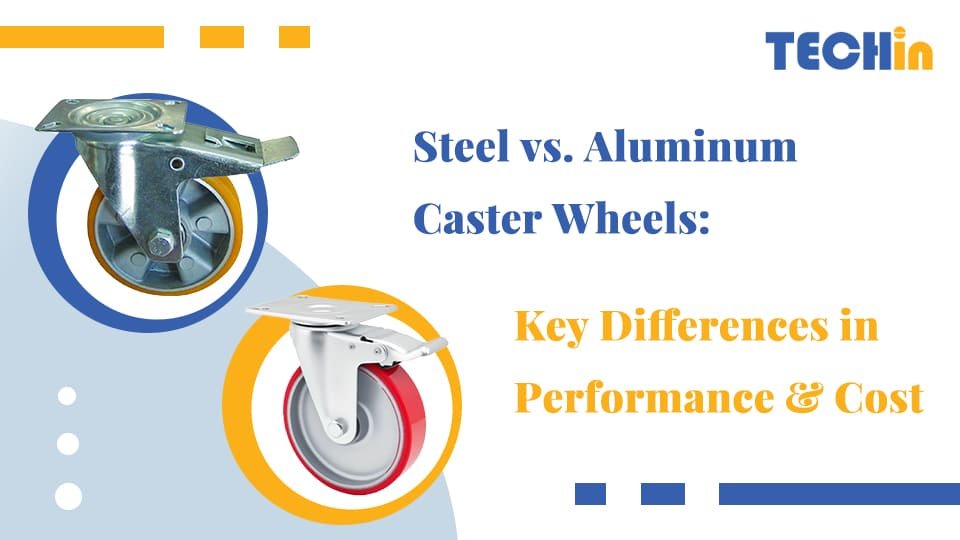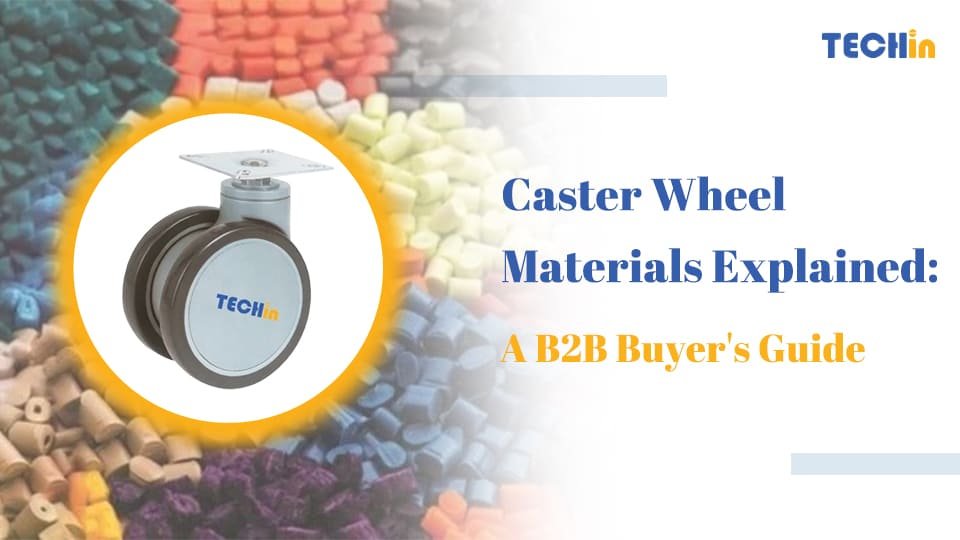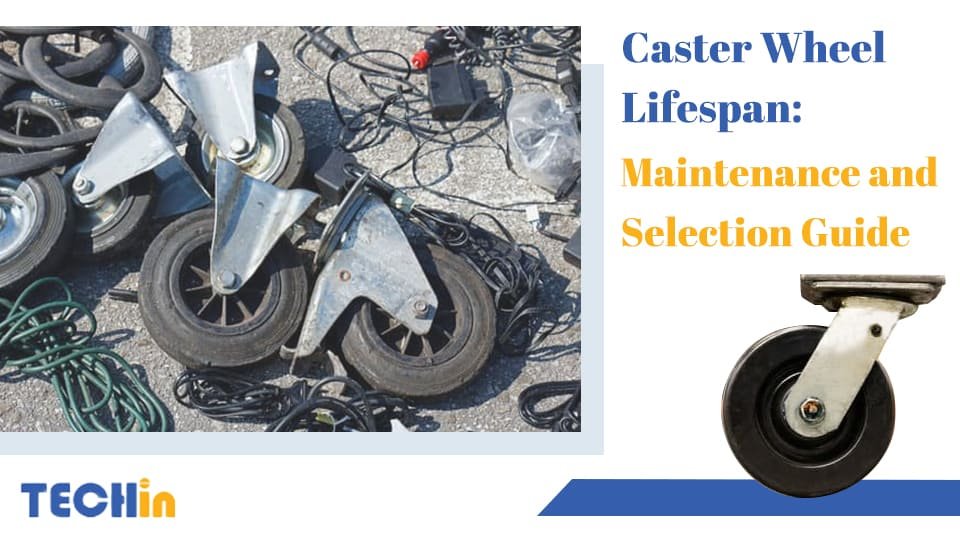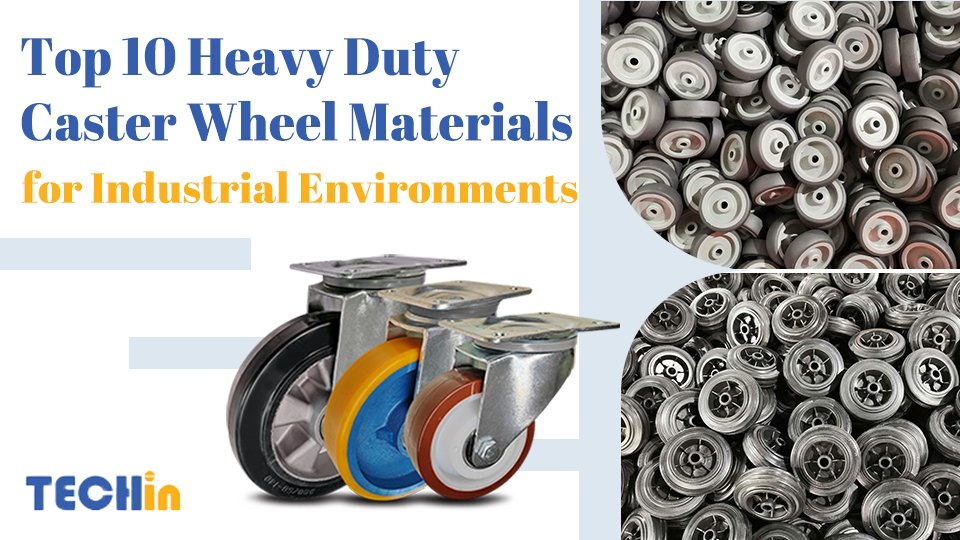Introduction
It’s a simple fact: repairing or replacing facility floors is a significant expense. The wrong caster wheels can quickly lead to scratches, dents, and premature wear, yet many buyers find themselves struggling to select the right wheel material and size. The solution, however, is straightforward. With the right information, you can effectively protect your flooring investment while maintaining optimal mobility and operational efficiency.
The best caster wheels for floor protection are those with soft treads, such as rubber, TPR/TPE, and polyurethane. These materials are engineered to distribute weight evenly, prevent surface damage, and reduce operational noise. For hardwood and other delicate surfaces, I strongly recommend soft polyurethane or TPR casters. For heavy-duty applications, wide polyurethane wheels offer the ideal balance of high durability and floor preservation. The key principle is to always align the wheel specifications with your flooring type and load capacity to prevent damage.
Now that we’ve established the basics, let’s delve into the specific caster wheel options, evaluate their pros and cons, and determine how to select the right fit for your facility.
What caster wheels won’t damage floors?
Caster wheels engineered to prevent floor damage are almost always made from soft-tread materials. The most reliable options include:
- Polyurethane (PU): An excellent all-around choice for wood, tile, concrete, and epoxy floors due to its quiet operation and protective qualities.
- Rubber: Inherently gentle on floors, though lower-grade compounds can sometimes cause marking.
- TPR/TPE (Thermoplastic Rubber/Elastomer): This material combines the flexibility of rubber with advanced non-marking properties.
- Neoprene: A resilient rubber alternative well-suited for industrial environments.
Conversely, hard casters, such as those made from nylon or steel, should not be used on finished or delicate floors, as they are known to cause scratches and indentations.
Do rubber wheels damage wooden floors?
In general, rubber wheels are an effective choice for protecting wooden floors because they cushion impact and provide a smooth roll. However, two potential risks must be considered:
- Marking or staining can occur if the rubber compound is of poor quality or reacts negatively with certain floor finishes.
- Accelerated wear on the floor can result from using narrow rubber wheels under heavy loads.
👉 For wood floors, the best practice is to select certified non-marking rubber or TPR/TPE wheels. This gives you the necessary softness while mitigating the risk of surface staining.
Are polyurethane casters good for all floors?
Polyurethane casters are widely regarded as the most versatile solution available. They effectively protect a wide range of surfaces, including hardwood, vinyl, epoxy, tile, and concrete. Their primary benefits include:
- Quiet rolling and excellent vibration absorption.
- A significantly higher load capacity compared to rubber.
- Strong resistance to oils, chemicals, and moisture.
The only notable limitation is on ultra-smooth surfaces like polished tile, where a softer TPR wheel might be required to ensure optimal grip.
What are the best floor protectors for wheeled furniture?
Beyond selecting the right casters, you can implement a multi-layered strategy with floor protection accessories, such as:
- Caster cups or pads: These distribute the static load when furniture is stationary for long periods.
- Area rugs or mats: Provide a physical barrier for especially delicate or high-traffic areas.
- Non-marking glides: An ideal solution for chairs or equipment that is moved infrequently.
This combined approach ensures maximum protection for your flooring investment.
How to choose the right caster wheels for different floor type
Matching the caster to the floor surface is crucial for preventing damage. Here is a clear guide to proper selection:
- Hardwood floors: Soft polyurethane or TPR/TPE casters are the ideal choice.
- Tile floors: Rubber or TPR casters help prevent chipping and reduce noise.
- Vinyl floors: Polyurethane casters are effective at preventing indentations.
- Concrete floors: Polyurethane or nylon offer durability, with PU providing superior protection.
- Epoxy floors: Soft PU or neoprene casters are recommended to reduce the risk of scratches.
👉 As a guiding principle, remember this: The harder the floor surface, the softer the caster wheel should be.
Comparison Table: Caster Wheel Materials for Floor Protection
| Material | Floor Protection Level | Load Capacity | Noise | Best For | Drawbacks |
|---|---|---|---|---|---|
| Rubber | Good, but may leave marks | Medium | Quiet | Wooden floors, light equipment | Can wear faster, marking risk |
| TPR/TPE | Excellent, non-marking | Medium-High | Quiet | Hardwood, tile, vinyl | Not ideal for very heavy loads |
| Polyurethane | Excellent, versatile | High | Quiet | Hardwood, concrete, epoxy | Can be too firm on very smooth tile |
| Nylon | Poor for delicate floors | Very High | Noisy | Concrete, rough surfaces | Scratches wood/tile, no cushioning |
Maintenance tips for caster wheels and floor protection
Even correctly specified wheels require routine maintenance to protect floors effectively. I recommend integrating these steps into your maintenance schedule:
- Regular cleaning: Remove abrasive debris and dust from the wheels.
- Lubricate bearings: Ensure smooth rotation to reduce drag and potential scuffing.
- Inspect wheels: Proactively replace wheels that show signs of wear or hardening.
- Check load limits: Adhering to capacity ratings prevents both wheel and floor damage.
Summary
Protecting your floors is a straightforward process of choosing the right caster wheel material, matching it to your specific floor type, and performing regular maintenance. By investing in high-quality, appropriate casters, you will extend the life of your floors, significantly reduce repair costs, and maintain a smooth, efficient, and safe facility.

